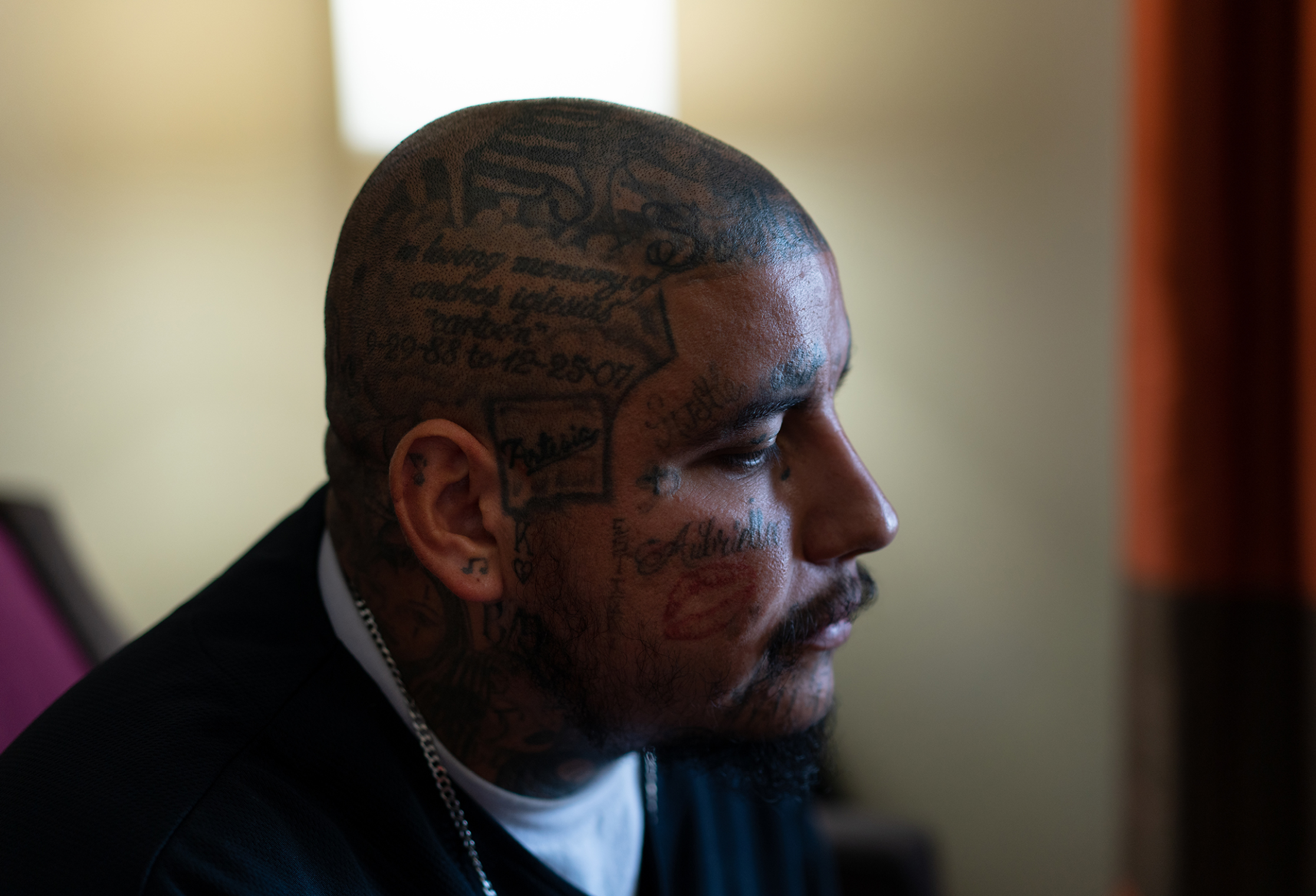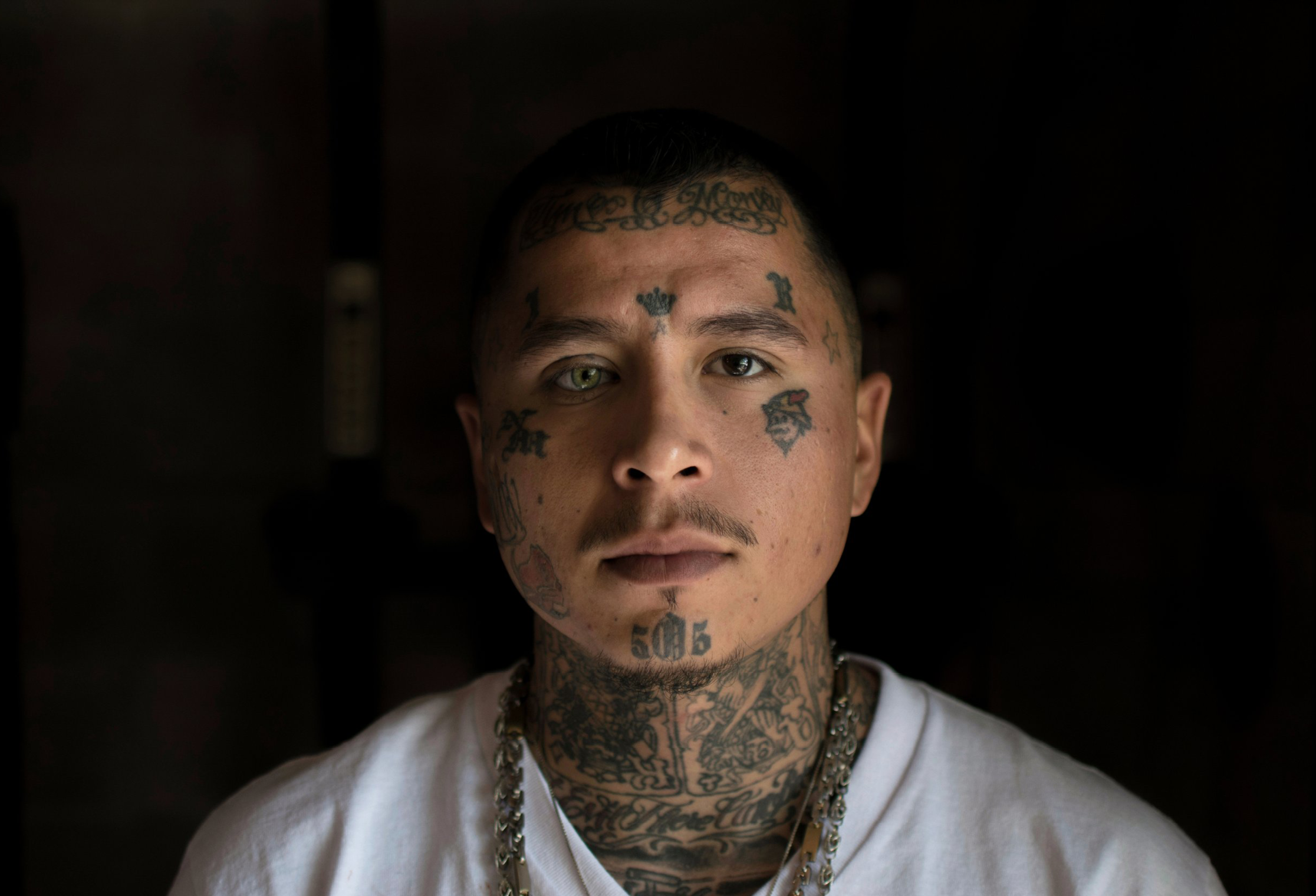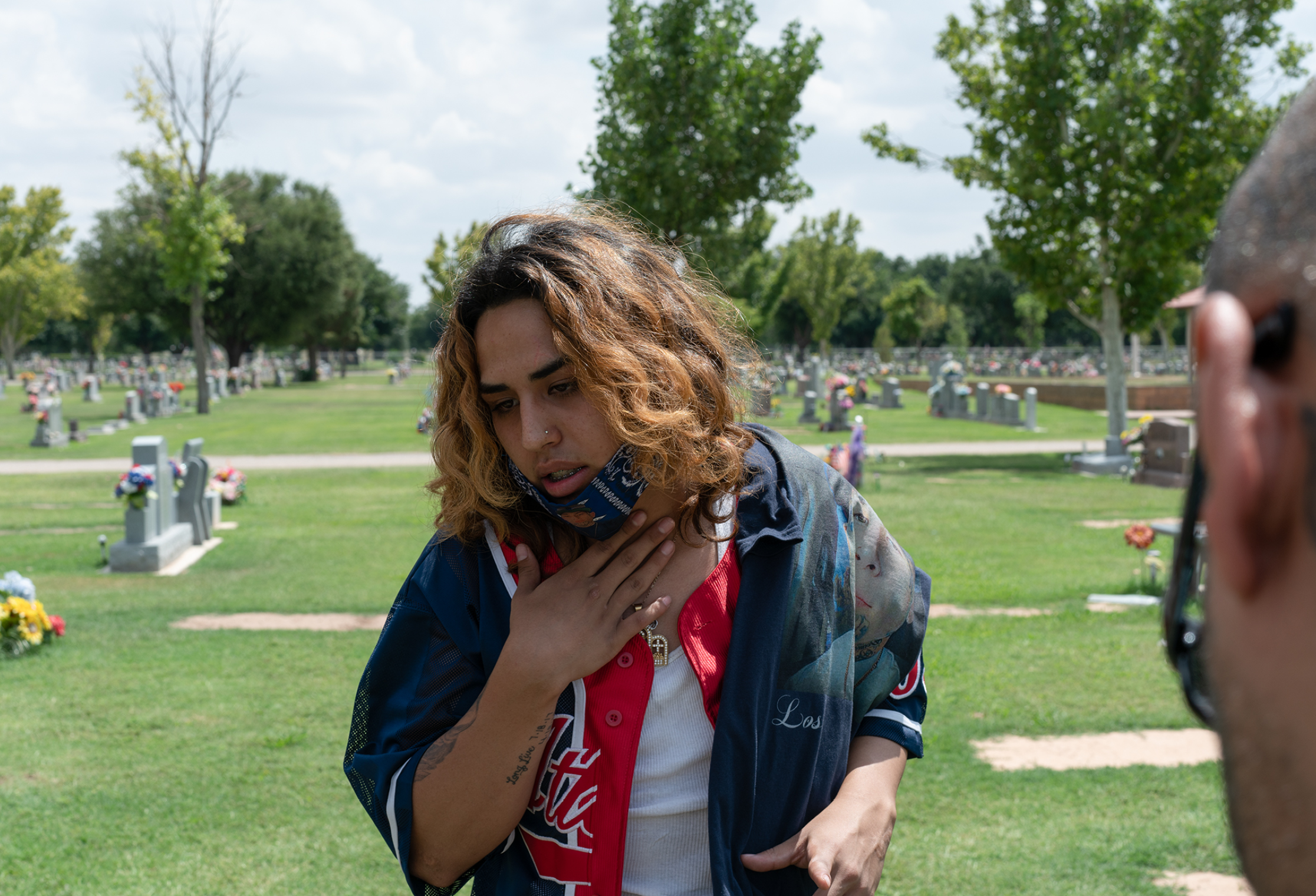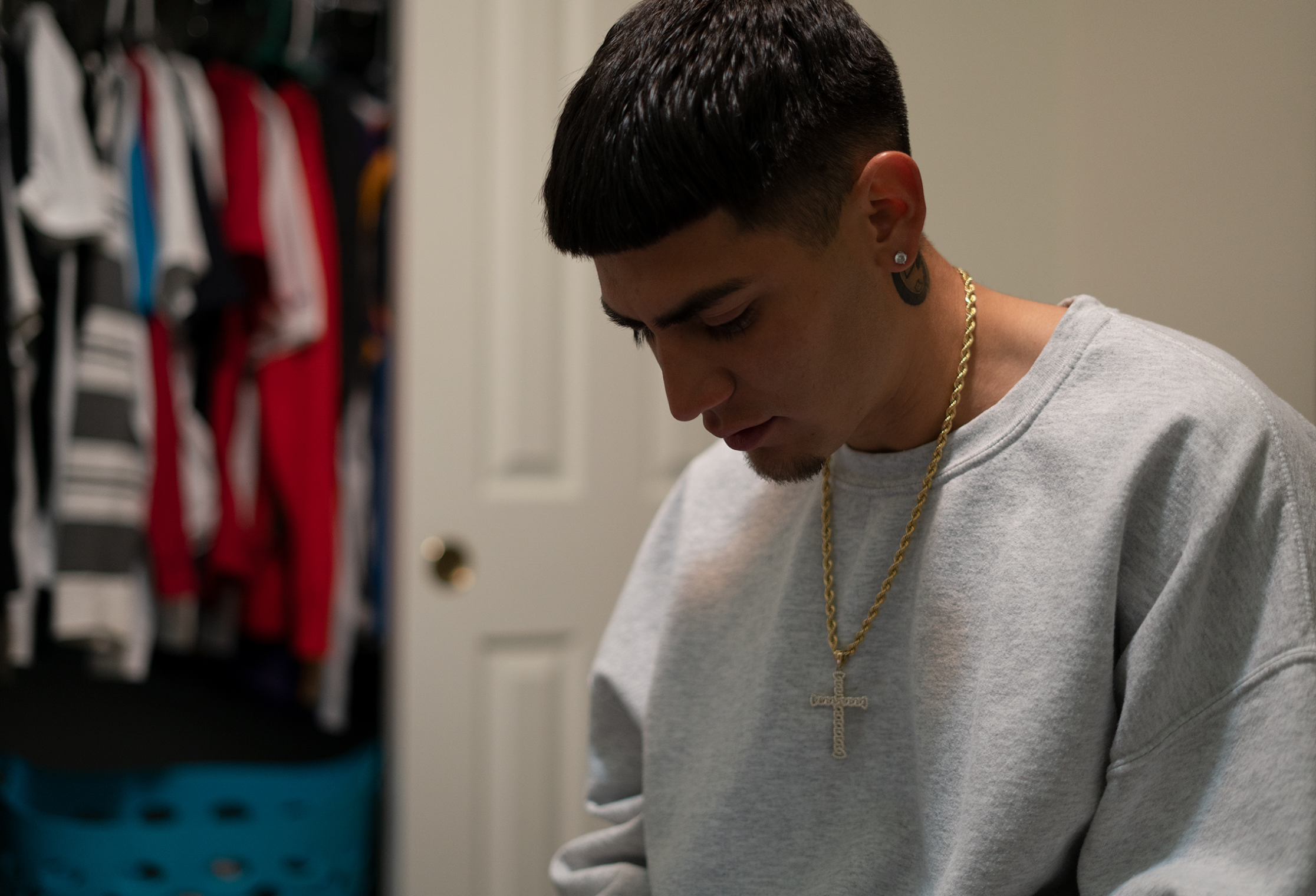Frank Blazquez is a visual artist and essayist creating portraiture, documentary film, and mixed-media that merges elements of personal narrative and witness to bring context to the complex realities of the Latinx community in North America’s Southwest.
Blazquez’s poignant work comes from a desire to build a histography of what led to his opiate addiction and rehabilitation by closely examining and upending tropes related to Latinx culture along the border. His portraits and film feature vulnerable focally-centered and moderately posed images of people from his community in rural New Mexico, many of whom are decorated in intricate “prison tattoos, Southwestern symbolism and iconography.” Emphasizing natural light and balanced contrast, Blazquez invokes empathy and intimacy in the viewer by humanizing his subjects and steering away from the gritty textures and overwhelming shadows that typically characterize contemporary portraits of Latinx people from this region. His essays, several featured in The Guardian, take a decolonized and unobstructed look at the circumstances that can lead to opiate abuse and mass incarceration.
The Smithsonian National Portrait Gallery is currently exhibiting Blazquez’s portraiture and his artwork was recently displayed in State of the Art 2020: an exhibit at Crystal Bridges Museum of State of the Art 2020: an exhibit at Crystal Bridges Museum of in Vice, Huffpost, Remezcla, Hyperallergic, and Artsy.
Several fellows were asked a series of questions about their work to help us understand the impact the Right of Return-USA Fellowship has had on them and their careers. Their answers have been edited for brevity and clarity.



